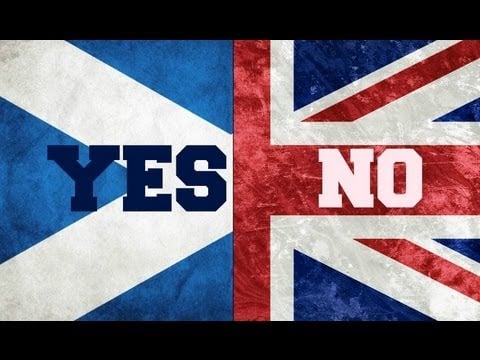Bookies Beat Pollsters in Scottish Referendum
Posted on: September 19, 2014, 06:14h.
Last updated on: September 19, 2014, 06:45h.

Did bookies know the results of the Scottish referendum in advance, while polls were way off the mark? It sure looks that way.
Scotland has voted to stay in the UK, with 55.3 percent of voters deciding against dissolving the 300-year union of nations and going it alone. Many were surprised that the margin between winning and losing votes was as wide as 10 percent; a number of polls had predicted that the result was too close to call and that the “Yes” and “No” campaigns were split straight down the middle.
The truth is, polls were all over the place: contradictory and fluctuating wildly. They ranged from a six-point lead for the “yes” vote to a seven point lead for the “no” vote in the weeks leading up to the referendum. And although they were correctly predicting a “no” vote on the eve of the big day, they considerably underestimated the margin of the “No” victory.
Margins of Error
Not the bookies, though. They had it all figured out ages ago. While the pollsters’ predictions were see-sawing, online sports betting outfit Betfair had already decided to pay out bettors who had their money on a”no” vote several days before the referendum even occurred. And while there was a whiff of a PR stunt about that announcement, it was made from a position of supreme confidence, because the betting markets were rating the probability of a “no” vote at around 80 percent at least a week before the vote took place. It was a forecast that, unlike that of the heavily swinging results of the pollsters, remained stable in the lead up to the referendum.
But why, then, are polls so unreliable in comparison with the betting markets, and why is the media in such thrall to their wildly unreliable results? The polling companies openly admit that their studies are inaccurate, often advising that we should allow for a margin of error, commonly around five percent. This means that in a closely fought race, such as the Scottish referendum, their information is utterly worthless. In a race where one party, according to the polls, is leading by, say, 52 percent, the existence of a 5 percent margin of error renders that survey useless.
The Wrong Questions
There are many factors that make polls unreliable, too many, in fact, to list here. Sometimes the sample size of respondents is too low, or it’s unrepresentative of the population. Sometimes they ask leading questions, or those that conduct them are dishonest or sloppy about recording information. But the ultimate, prevailing reason why polls fail is that they usually ask the wrong question. Instead of asking people who they will vote for, they should be asking the question that the bookies always ask: “Who do you think will win?”
Research conducted by Professor Justin Wolfers suggests that this question yields better forecasts, because, to quote Wolfers, it “leads them to also reflect on the opinions of those around them, and perhaps also because it may yield more honest answers.”
Dishonest Answers
In a case such as the Scottish referendum, where there is a large and popular movement for change, those interviewed by pollsters are far more likely to express their support for change, while suppressing their concerns about the possible negative consequences. When asked about an issue on the spot, it’s easier to express the perceived popular view. For the Scots, a “yes” vote might represent the attractive proposition of severing ties with a remote and unpopular government in Westminster, but it also means uncertainty and possible economic chaos.
As Wolfers says, “There is a historical tendency for polling to overstate the likelihood of success of referendums, possibly because we’re more willing to tell pollsters we will vote for change than to actually do so. Such biases are less likely to distort polls that ask people who they think will win. Indeed, in giving their expectations, some respondents may even reflect on whether or not they believe recent polling.
In short, when asked whether they would vote for an independent Scotland, a significant number of Scots apparently lied. Gamblers, on the other hand, were brutally honest.
No comments yet